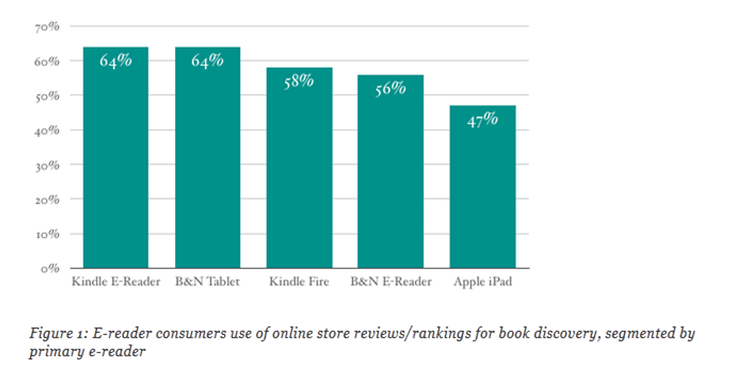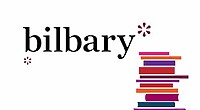
The publishing industry, both in its digital and paper forms, is still finding ways to address and overcome the current hot topic of book discovery. Fortunately, NextMarket Insights just released some information that might tip off those in the book business as to how consumers are currently learning about new books.
NextMarket conducted a survey of over 1200 households towards the end of 2012, and the results explained how many consumers find new books. Overwhelmingly, Kindle and Nook users rely on the Amazon and Barnes and Noble online storefronts respectively to aid them in browsing for titles; that trend was tied at 64% of users for both Kindle and B&N tablet readers. It is important to note that the majority of Amazon users said they rely on ratings and reviews of books on Amazon’s website, which speaks to the current firestorm of anger from authors and publishers over the so-called corruption in Amazon reviews, given that reviews apparently do matter a great deal to consumers.
Also explained in this report was an age breakdown for how customers find new books through social media. Interestingly, when the first e-reader boom emerged and it seemed everyone was boarding mass transit with a Kindle or Nook tucked in the outer pocket of the briefcase, there was one demographic that lagged behind the crowd, firmly grasping its printed books: kids. Whether it was small children whom parents weren’t ready to trust with an expensive device or teenagers who saw reading on their technology as a school-related activity and therefore opted to limit their devices to games and social interactions, children of various ages were some of the last to adopt e-reading.
According to NextMarket’s data, that’s changing. It showed that the younger demographic of consumers in the 18-29-year-old range–arguably some of those same teenagers and college students who may have been reluctant digital readers at the beginning of the e-reader device surge–are three times more likely than any other age range of adults to use an online source such as social media or retailers’ online storefronts to browse and discover new books to read.
Mercy Pilkington is a Senior Editor for Good e-Reader. She is also the CEO and founder of a hybrid publishing and consulting company.
